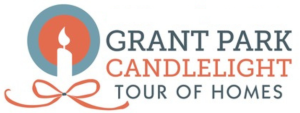By Paul Bolster and Nathan Clubb
Prior to the 2021 Atlanta City elections there was much discussion about zoning reform. Last year lots of public meetings were held on this topic, but no action recommended. This year is going to be different.
The city will now focus on Atlanta’s Community Development Plan (CDP – make that acronym part of your vocabulary). City planners have decided changes CDP must come before making any changes in the existing zoning. The CDP is about future use of the land while zoning is about how the land can be used now. As a result, city planners are now launching a new broad-based discussion of the next CDP.
Much of the discusson of the CDP will focus on the future of single family zoning. Elizabeth Williams of Kberg Urban Architects, points out 50% of the city’s land area is presently zoned for single family housing. This will make it difficult for the city to meet its stated goals of “equitable, inclusive, and accessible communities,” she said. The city’s population is going to expand and land use regulations need to make room for the new arrivals, she said. One way to accommodate the growth is have more housing units permitted on single family lots in some areas of the city. That would include permitting duplexes, auxiliary units (ADUs), small condominiums, and small apartments in areas that have been single family zones.
Think of it this way. If a developer buys a lot in Ormewood Park, zoning allows him to build a very large home (“Mega Mansion”) for one family and sell it for over a million dollars. If the changes contemplated go into effect, our friendly developer could decide (and be encouraged) to build several family units. (Aside: I have to admit that my wife and I like to stay in the neighborhood in one of those smaller non-existent units.)
If you would like to read another argument against single family zoning go to Matthew Desmond’s new book Poverty, by America. He calls this “exclusionary zoning.” These zoning restrictions put up walls that keep people in poverty, he claims.
According to Williams, changing single family land use and then the zoning is perhaps the hardest thing to change in the CDP. Williams’ core argument is that single family zoning “limits housing choice, artificially contains housing supply, and drives up cost.” The city’s close-in neighborhoods with “the greatest access to transit, jobs, services and amenities should be the most inclusive,” she said.
Does this description fit the neighborhoods of NPUW and the Porch Press? Get ready to tune in to the meetings of the NPU and your neighborhood association for what is likely to be a lively discussion that may shape the future of our neighborhoods.





